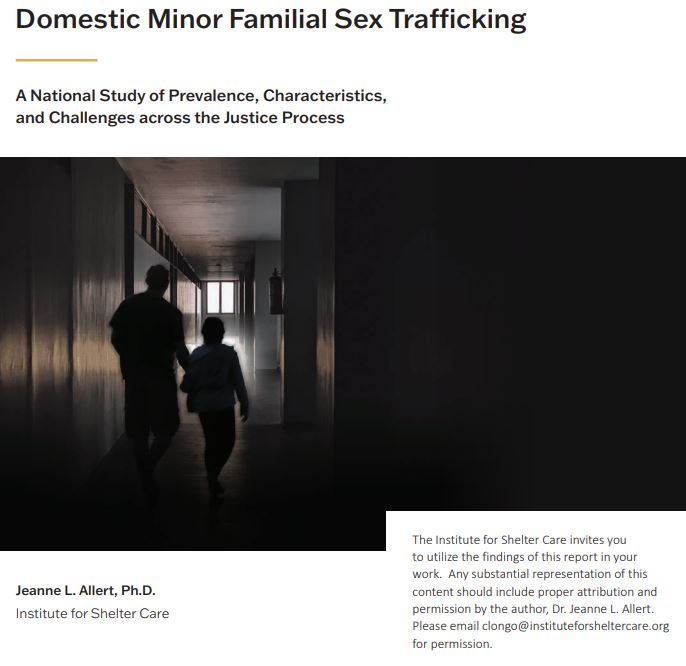Hidden in Plain Sight: The Prevalence of Familial Sex Trafficking in the US
Summary
The study “Domestic Minor Familial Sex Trafficking: A National Study of Prevalence, Characteristics, and Challenges across the Justice Process” sheds light on the prevalence of familial sex trafficking (FST) in the United States. While StoptheTraffik.org identifies 11 subcategories of sex trafficking, familial trafficking is not included, despite evidence indicating that a significant proportion of child sexual abuse and trafficking is perpetrated by family members. Several state-level reports from across the US reveal the prevalence of familial trafficking, with estimates ranging from 3% to 44% of child trafficking cases. The study author conducted a pilot study in 2020 which found that 18.1% of 1,696 sex trafficking cases were confirmed as FST. In the current study, which represents 3,505 sex trafficking cases, 26.1% were confirmed as familial.
The study found that inadequate resources and training in forensic interviewing and the failure of Social Services to assist are significant impediments to identifying and addressing familial trafficking cases. The study suggests that the prevalence of familial cases among the universe of domestic minor sex trafficking cases is a problem of significant proportion, with familial cases potentially representing 26% of all minor sex trafficking cases.
The study calls for further research to refine our understanding of the prevalence of familial trafficking and to improve our ability to identify and address these cases. The evidence suggests that familial trafficking is an under-recognized but significant form of human trafficking in the United States.
Conclusions
The study aimed to understand the prevalence and characteristics of domestic minor familial sex trafficking and the specific challenges faced in the justice process. The research suggested that there is a significant gap in understanding due to various reasons, such as the difficulty in distinguishing familial trafficking from other types of child abuse, the secrecy surrounding familial trafficking, and the fear of the children to disclose their exploitation.
The study highlighted the need for social interventions and training for mandated reporters to identify at-risk families and screening tools that can identify victim-perpetrator dynamics. The professionals who work with at-risk families need appropriate tools and training to identify cases correctly. The study also emphasized the need for greater societal recognition of the vulnerability of children in families with poverty, domestic violence, and substance abuse.
Finally, the study called for the education of judges and attorneys on familial exploiters and demanded the need for victim services specific to sexual exploitation, which are currently lacking in availability and expertise to attend to the unique wounds of a child exploited by their own family.
 ABOUT PBJ LEARNING
ABOUT PBJ LEARNING
PBJ Learning is a leading provider of online human trafficking training, focusing on awareness and prevention education. Their interactive Human Trafficking Essentials online course is used worldwide to educate professionals and individuals how to recognize human trafficking and how to respond to potential victims. Learn on any web browser (even your mobile phone) at any time.
More stories like this can be found in your PBJ Learning Knowledge Vault.
ABOUT PBJ LEARNING
PBJ Learning is a leading provider of online human trafficking training, focusing on awareness and prevention education. Their interactive Human Trafficking Essentials online course is used worldwide to educate professionals and individuals how to recognize human trafficking and how to respond to potential victims. Learn on any web browser (even your mobile phone) at any time.
More stories like this can be found in your PBJ Learning Knowledge Vault.

